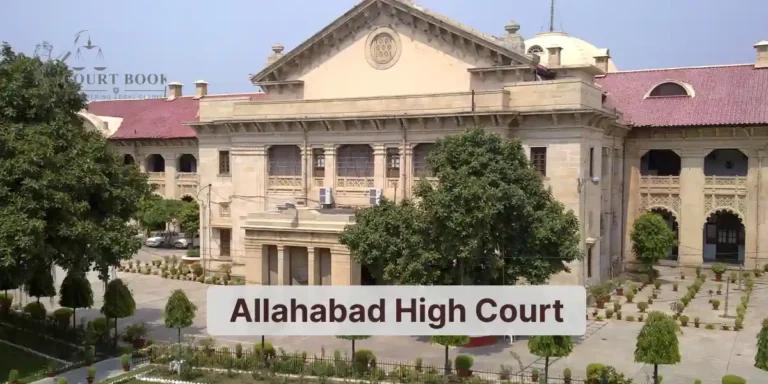The Allahabad High Court has once again emphasized that while imposing the condition of depositing 20% of the compensation amount under Section 148 of the Negotiable Instruments Act, 1881, courts must ensure that such a condition is neither unjust nor deprives the appellant of their right to appeal.
The court clarified that the imposition of this condition is not mandatory in all cases. It is at the discretion of the court to reduce or exempt the requirement in appropriate circumstances.
Legal Provision and Judicial Precedents
Section 148(1) of the NI Act states that when an appeal is filed against a conviction under Section 138 for dishonoring a cheque, the appellate court may direct the appellant to deposit at least 20% of the compensation awarded.
Citing precedents, including Jamboo Bhandari vs. M.P. State Industrial Development Corporation Ltd. (2023) and Muskan Enterprises and Another vs. State of Punjab and Another (2024), Justice Arun Kumar Singh Deshwal observed:
Read Also:- Allahabad High Court: No Obligation to Notify Informant When Excluding Non-Chargesheeted Accused
"Though, it is correct in view of the law laid down by the Apex Court that while passing an order under Section 148 of the NI Act, the condition of deposit should not be excessive or unjust. It is also not mandatory to impose the 20% deposit condition in every case, and courts have the discretion to reduce or exempt it when necessary. Therefore, courts must assess whether imposing such a condition would be unfair or would amount to depriving the appellant of their right to appeal. Additionally, the financial status of the appellant can be taken into account to determine if an exception applies."
Case Background
In this case, the complainant (opposite party no. 2) filed a complaint under Section 138 of the NI Act against the applicant, leading to the latter’s conviction. The applicant subsequently filed an appeal challenging the conviction, during which the trial court directed him to deposit 20% of the compensation as a precondition for interim protection.
Challenging this order under Section 482 of the CrPC, the applicant approached the Allahabad High Court. The High Court set aside the order and remanded the matter back to the appellate court, allowing the applicant to deposit only 10% of the fine.
Read Also:- Approval Granted 30 Years Ago Cannot Be Withdrawn Due to Procedural Grounds: Allahabad High Court
After complying with this direction, the applicant sought a waiver of the 20% deposit requirement, arguing that the amount was too large and unjust. However, the appellate court rejected this request and directed the applicant to submit his income tax returns (ITR) and proof of income for the past five years to evaluate whether his case fell under the exceptional category for exemption.
High Court’s Observations
The applicant contended that the appellate court misinterpreted the Supreme Court’s ruling in Muskan Enterprises, which stated that the focus should be on whether the 20% deposit was unjust, rather than requiring proof of income.
Read Also:- Court Lacks Expertise to Verify Signatures; Must Seek Handwriting Expert's Opinion: Allahabad HC
The state, however, argued that the appellate court had not yet passed a final order and that assessing the applicant’s financial status was within its legal rights.
After reviewing the case, the High Court noted that the appellate court was justified in directing the submission of financial documents to determine if the 20% deposit requirement should be waived. The court further stated:
"While imposing the condition under Section 148 of the NI Act, courts should ensure that the requirement is neither excessive nor unjust. The financial status of the appellant can be a valid consideration in deciding whether an exception applies."
The High Court upheld the order of the appellate court, stating that there was no illegality in its direction. However, it also advised the lower court to ensure that the condition imposed is fair and does not unduly burden the appellant.
With these observations, the Allahabad High Court disposed of the application.
Case Title: Rajesh Kumar Gupta v. State of U.P. and Another
Case No.: Application U/S 528 BNSS No. - 7574 of 2025
Counsel for Applicant: Naman Agarwal, Nipun Singh
Date of Order: March 7, 2025














